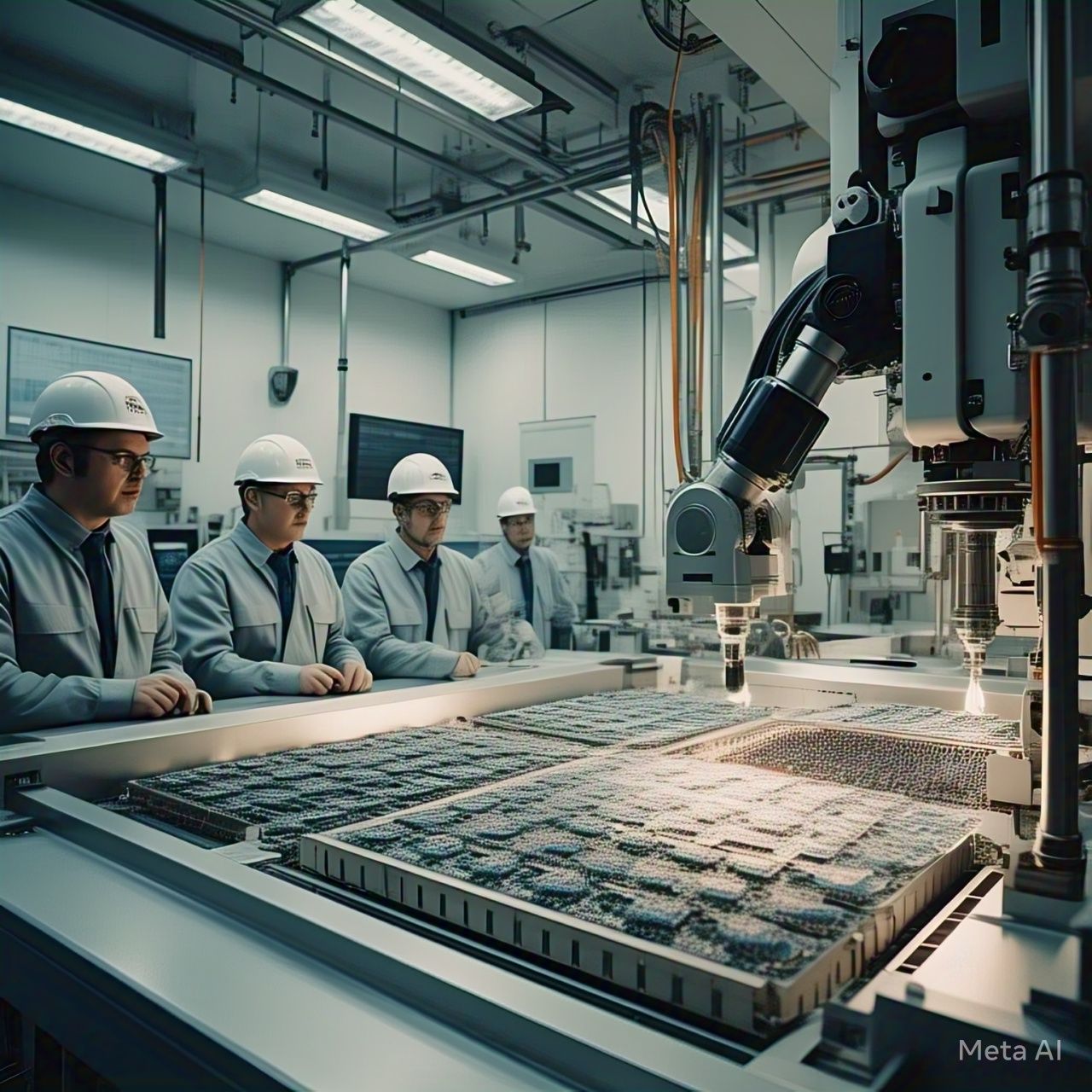The semiconductor industry has always been at the forefront of technological advancements, and artificial intelligence (AI) is playing an increasingly critical role in chip manufacturing. As chips become smaller and more complex, traditional manufacturing methods struggle to maintain efficiency and accuracy. AI-driven solutions are now being deployed to optimize the production process, reduce errors, and enhance yield, ensuring that semiconductor fabrication keeps pace with growing demands.
The Challenges in Modern Chip Manufacturing
Manufacturing semiconductors is an intricate process that involves multiple stages, including wafer fabrication, lithography, etching, and assembly. Some of the key challenges faced by chip manufacturers include:
- Defect Detection and Quality Control: Even minute defects can render a chip useless, leading to significant financial losses.
- Process Variability: Variations in material quality, temperature fluctuations, and minor discrepancies in the production process can impact chip performance.
- Yield Optimization: Maximizing the number of functional chips per wafer is crucial for profitability.
- Complex Data Management: Semiconductor manufacturing generates vast amounts of data, making manual monitoring and analysis impractical.
How AI is Revolutionizing Chip Manufacturing
AI is transforming semiconductor fabrication by introducing intelligent automation, predictive analytics, and real-time quality control. Below are some key ways AI is making a difference:
1. Automated Defect Detection
AI-powered computer vision systems are being integrated into chip manufacturing lines to identify defects at microscopic levels. These systems leverage deep learning models trained on vast datasets to detect anomalies faster and more accurately than human inspectors.
- Machine learning algorithms analyze images from high-resolution cameras to detect irregularities.
- AI helps reduce false positives and negatives, ensuring more precise defect identification.
- Early detection of errors minimizes waste and improves overall efficiency.
2. Process Optimization with Predictive Analytics
AI-driven predictive analytics enables manufacturers to foresee potential issues and adjust processes accordingly. By analyzing historical data, machine learning models can:
- Predict equipment failures before they occur, allowing for proactive maintenance.
- Optimize parameters like temperature, pressure, and chemical composition for improved consistency.
- Reduce downtime by streamlining production workflows.
3. Yield Enhancement Through AI-Driven Insights
AI helps manufacturers maximize yield by identifying patterns and correlations that would be difficult for humans to recognize. For example:
- AI can analyze production data to determine which factors contribute to lower yield rates.
- Advanced AI models can suggest process adjustments that increase the number of functional chips per wafer.
- Manufacturers can implement AI-guided process control to reduce defects and enhance efficiency.
4. AI-Powered Supply Chain Management
AI is not only enhancing manufacturing processes but also improving supply chain operations. By leveraging AI, companies can:
- Predict demand fluctuations and adjust production schedules accordingly.
- Identify optimal sourcing strategies to reduce material costs.
- Optimize logistics to prevent delays in raw material procurement and product delivery.
5. Real-Time Monitoring and Adaptive Manufacturing
AI enables real-time monitoring of manufacturing equipment and processes. By using IoT sensors and AI-driven analytics, manufacturers can:
- Adjust production parameters dynamically based on live data.
- Detect process drifts and make real-time corrections.
- Ensure consistent quality and prevent large-scale defects.
The Future of AI in Semiconductor Manufacturing
The integration of AI in chip manufacturing is still evolving, but its impact is undeniable. Future advancements in AI and machine learning will drive further innovations, such as:
- Self-Optimizing Fabs: AI-driven semiconductor fabs that continuously optimize production without human intervention.
- Generative AI for Chip Design: AI models that can autonomously design chips optimized for specific applications.
- Quantum AI for Process Enhancement: Leveraging quantum computing to further refine AI’s predictive capabilities in manufacturing.
Conclusion
AI is reshaping the landscape of semiconductor manufacturing by reducing errors, enhancing yield, and optimizing processes. By leveraging AI-driven defect detection, predictive analytics, and real-time monitoring, chip manufacturers can significantly improve efficiency and profitability. As AI technology continues to evolve, the semiconductor industry is set to experience unprecedented advancements, ensuring that the demand for high-performance chips is met with greater precision and reliability.




